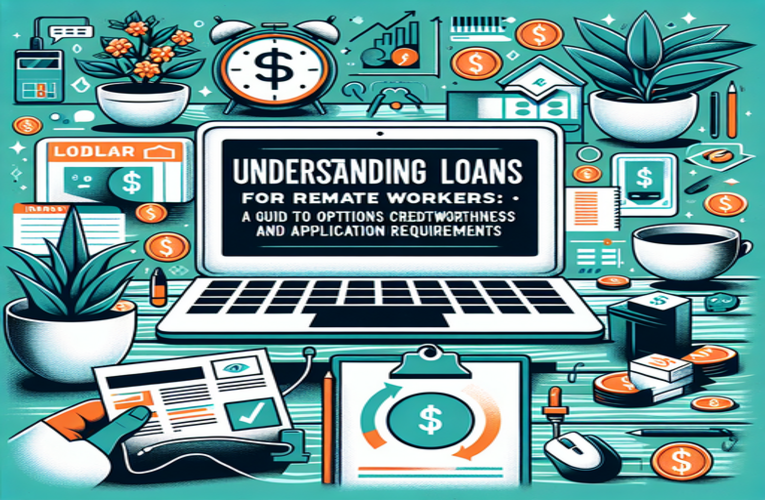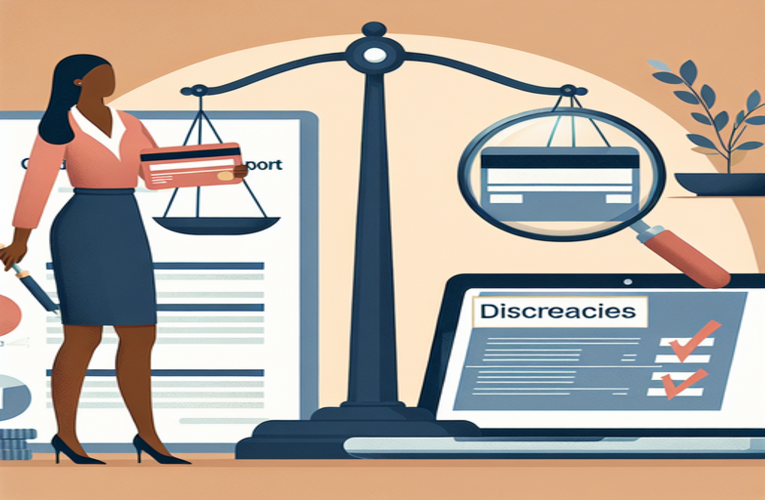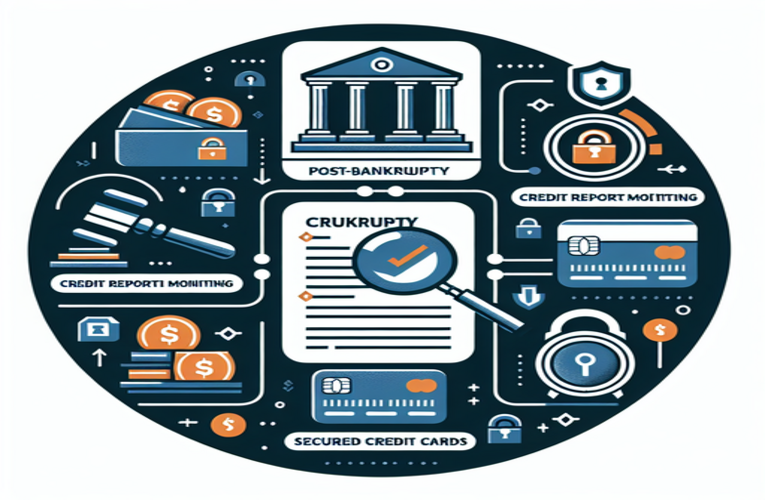How to negotiate business loan terms: understanding bank limitations and key strategies for success
In today’s competitive business landscape, understanding the intricacies of business loans is essential for any entrepreneur. Successfully securing funding often requires not only knowledge of loan products but also the ability to negotiate favorable loan terms with lenders. The process can feel overwhelming, particularly when faced with bank limitations that may impact loan eligibility, interest rates, and repayment conditions. This guide aims to equip you with the knowledge necessary to negotiate business loan terms effectively and navigate these complexities with confidence.
Throughout this guide, we will explore:
- The significance of understanding bank objectives
- Strategies for negotiating flexible loan terms
- Essential financial documentation to prepare for loan negotiations
By familiarizing yourself with these key aspects, you’ll enhance your negotiating power and increase your chances of securing optimal business loan terms. Furthermore, we’ll provide actionable insights on how to negotiate loan terms with banks, transforming challenges into opportunities and strengthening your business’s financial foundation. Whether you’re a small business owner seeking to negotiate a commercial loan or a financial manager aiming to optimize loan agreements, this guide will serve as a practical resource for effectively managing business loan negotiations.
Table of Contents
Recognizing Bank Limitations in Business Loan Negotiations
Navigating the complexities of business loan negotiations requires a keen understanding of the limitations and constraints that banks operate under. Being aware of these banking limitations is crucial for entrepreneurs aiming to secure the best possible terms for their business loans. Banks are governed by regulatory requirements, risk assessments, and internal policies that influence their lending decisions. For instance, understanding how Basel III regulations impact a bank’s capital requirements can provide insight into their lending capacity and the terms they might offer. By comprehending these factors, business owners can align their loan requests in a way that addresses bank concerns, thereby increasing the likelihood of approval and favorable terms.
Critical Factors Influencing Bank Lending Decisions
Several key aspects influence how banks evaluate business loan applications. Understanding these factors can empower business owners during negotiations. These include:
- Regulatory Compliance: Banks must adhere to strict regulations such as capital adequacy ratios, which affect their ability to lend. Awareness of these regulations can help in structuring loan proposals that are more acceptable to banks.
- Risk Management Policies: Financial institutions assess the risk profile of borrowers meticulously. Providing detailed risk mitigation strategies and solid business plans can alleviate their concerns.
- Profitability Objectives: Banks aim to achieve certain returns on their lending activities. Understanding this can assist in negotiating interest rates and fees that are acceptable to both parties.
- Market Conditions: Economic indicators such as market volatility, inflation rates, and industry trends can influence lending terms. Staying informed about these factors can enhance negotiation positions.
Optimizing Negotiation Strategies with Banks
Armed with an understanding of bank limitations, business owners can tailor their negotiation strategies to be more effective. Here are some strategies to consider:
-
Enhancing Creditworthiness:
Present a strong credit history and financial stability. Providing audited financial statements, credit reports, and demonstrating consistent cash flow can persuade banks of your reliability, potentially leading to lower interest rates.
-
Offering Collateral:
Secure the loan with valuable assets. Banks are more willing to offer better terms when loans are backed by collateral, reducing their risk exposure.
-
Building Relationships:
Develop a rapport with your bank. Long-standing relationships can lead to more favorable negotiations, as banks are more inclined to accommodate clients they know well.
-
Proposing Flexible Terms:
Negotiate repayment schedules and terms that align with your business’s revenue cycles. Flexibility can be appealing to banks if it increases the likelihood of timely repayments.
Leveraging Opportunities Within Bank Constraints
Recognizing areas where banks might have flexibility can lead to advantageous negotiation outcomes. For example, while interest rates may be influenced by federal rates and bank policies, banks might be more flexible with fees or repayment terms. A comparative analysis of loan offers from multiple banks can provide leverage in negotiations. Additionally, small or community banks might have different lending criteria compared to large national banks, presenting alternative opportunities.
| Loan Element | Bank Considerations | Negotiation Strategies |
|---|---|---|
| Interest Rates | Managed by bank’s risk assessment and profit goals | Highlight strong financials to request lower rates |
| Fees and Charges | Set to cover administrative costs and enhance profitability | Negotiate for reduction or waiver of certain fees |
| Collateral Requirements | Used to mitigate risk of default | Offer high-value collateral or negotiate terms based on strong credit history |
| Repayment Terms | Aligned with bank’s cash flow and capital recovery objectives | Propose a repayment schedule that fits your cash flow while meeting bank’s needs |
By strategically addressing each of these elements, business owners can negotiate loan terms that not only meet their financing needs but also align with the bank’s requirements, leading to mutually beneficial agreements.
Advanced Strategies for Negotiating Favorable Business Loan Terms
Securing favorable terms on a business loan involves more than just a good credit score. It requires a strategic approach that encompasses thorough research, preparation, and effective communication. Below are advanced strategies to consider when negotiating business loan agreements:
Conducting In-Depth Market Research
Understanding the current lending landscape is critical. Research prevailing interest rates, loan terms, and conditions offered by various financial institutions. For example, if the average interest rate for your industry is 5%, and a bank offers 6%, you have grounds to negotiate. Utilize resources such as the Federal Reserve’s reports on lending rates, industry publications, and financial news outlets to stay informed. This knowledge not only strengthens your negotiation position but also helps in setting realistic expectations.
Strengthening Your Financial Position
Presenting a robust financial profile is essential. Prepare detailed financial statements that include:
- Balance Sheets: Showcasing assets and liabilities to illustrate net worth.
- Income Statements: Demonstrating profitability over time.
- Cash Flow Statements: Highlighting liquidity and ability to meet repayment obligations.
- Financial Projections: Providing forecasts based on realistic assumptions to show future profitability.
Consider hiring a certified public accountant (CPA) to audit your financials for added credibility. A well-prepared financial portfolio demonstrates transparency and instills confidence in lenders, potentially leading to more favorable loan conditions.
Mastering Loan Agreement Details
Understanding the intricacies of loan agreements can prevent unforeseen expenses. Key elements to scrutinize include:
- Prepayment Penalties: Fees charged for paying off the loan early.
- Covenants: Conditions that may restrict business operations, such as limitations on additional borrowing or requirements to maintain certain financial ratios.
- Variable Interest Rates: Terms that may lead to fluctuating payments based on market rates.
- Security Clauses: Collateral requirements and the rights of the lender in case of default.
By identifying and negotiating these points, you can minimize costs and operational constraints, ensuring the loan aligns with your business needs.
Building Strong Lender Relationships
Personal relationships with lenders can significantly impact the negotiation process. Strategies to build rapport include:
- Regular Communication: Keeping the lender informed about business performance and plans.
- Professionalism: Maintaining a respectful and businesslike demeanor in all interactions.
- Transparency: Being open about challenges and how you plan to address them.
- Networking: Attending industry events where lenders are present to build connections.
Lenders who trust and understand your business are more likely to offer favorable terms. A strong relationship can also lead to future financing opportunities as your business grows.
Negotiation Techniques and Timing
Applying effective negotiation techniques can significantly improve loan terms. Consider the following approaches:
- BATNA (Best Alternative to a Negotiated Agreement): Know your alternatives if negotiations fail, strengthening your position.
- Anchoring: Start negotiations with preferable terms to set the baseline.
- Problem-Solving Approach: Frame negotiations as a collaborative effort to find mutually beneficial solutions.
Timing also plays a crucial role. For example:
- End of Financial Quarters: Lenders may be more amenable to negotiations to meet lending targets.
- Economic Climate: In a low-interest-rate environment, lenders may offer better terms.
- Business Performance Cycles: Negotiating when your business shows strong performance can enhance credibility.
Strategizing the timing of your loan application can lead to more advantageous terms, potentially saving substantial funds over the loan’s duration.
The Impact of Comprehensive Preparation and Financial Documentation
Thorough preparation is the cornerstone of successful business loan negotiations. Providing detailed financial documentation and demonstrating a deep understanding of your business enhances credibility with lenders. According to a survey by the Small Business Administration (SBA), businesses that prepare comprehensive loan packages are 60% more likely to secure financing than those that do not.
Key Financial Documents for Loan Applications
- Business Plan: Outlining your business model, market analysis, and growth strategies.
- Tax Returns: Providing at least three years of business and personal returns.
- Debt Schedule: Listing all existing debts with repayment schedules.
- Collateral Documentation: Detailing assets that can secure the loan.
- Legal Documents: Including business licenses, registrations, and articles of incorporation.
Assembling these documents demonstrates professionalism and preparedness, increasing lender confidence. It shows that you have a clear plan for utilizing the loan funds effectively and repaying the loan on schedule.
Utilizing Financial Ratios and Metrics
Understanding and presenting key financial ratios can strengthen your negotiation position. Important metrics include:
- Debt-to-Equity Ratio: Indicating the proportion of debt used to finance assets.
- Current Ratio: Measuring liquidity and ability to cover short-term obligations.
- Return on Assets (ROA): Evaluating how efficiently assets generate profits.
- Interest Coverage Ratio: Assessing the ability to pay interest expenses.
Demonstrating strong financial ratios can justify requests for lower interest rates or more favorable terms. These metrics provide quantitative evidence of your company’s financial health, which is crucial for lenders during the assessment process.
Addressing Potential Lender Concerns
Proactively acknowledging and addressing potential concerns can facilitate smoother negotiations. This may include:
- Explaining Variances: If there are irregularities in financial performance, provide explanations and corrective actions.
- Contingency Plans: Presenting strategies to mitigate risks, such as market downturns.
- Management Experience: Highlighting the expertise of your management team.
By demonstrating awareness and preparedness, you reassure lenders of your business’s resilience. This proactive approach can differentiate you from other applicants and foster trust.
Engaging Professional Advisors
Consider involving professionals such as financial advisors or loan consultants. Their expertise can provide valuable insights into the negotiation process and enhance your bargaining power. They can assist with:
- Preparing Financial Documents
- Advising on Negotiation Strategies
- Interpreting Loan Terms
- Connecting with Lenders
While this may incur additional costs, the long-term benefits of securing optimal loan terms often outweigh the initial investment. Professional advisors can also help you navigate complex financial regulations and avoid potential pitfalls.
In conclusion, mastering the art of negotiating business loan terms is a multifaceted process that involves understanding bank limitations, preparing comprehensive financial documentation, and employing effective negotiation strategies. By taking a proactive and informed approach, business owners can significantly improve their chances of securing loans that support their growth objectives and contribute to long-term financial sustainability.
Summary
This article provides essential insights into how to negotiate business loan terms effectively. Here are the crucial takeaways:
- Understanding Bank Limitations: Recognize that financial institutions have specific objectives, such as risk mitigation, which can influence the terms of a business loan. By comprehending these constraints, you can refine your approach to negotiating loan conditions.
- Preparation of Financial Documentation: Thoroughly prepare key financial documents like historical revenues, profit margins, cash flow forecasts, and asset evaluations to bolster your credibility with potential lenders, thereby strengthening your position during business loan negotiations.
- Effective Negotiation Strategies: Conduct research on current interest rates, assess your financial standing, and cultivate positive relationships with lenders to secure more favorable loan terms.
- Key Elements to Negotiate: Concentrate on negotiating interest rates, repayment schedules, and collateral requirements to identify opportunities for obtaining more advantageous terms in your business loan agreements.
By implementing these strategies, you enhance your ability to negotiate favorable business loan contracts that can support both your immediate operational needs and long-term business growth.
Questions and Answers
Q1: What types of collateral are commonly accepted by banks for business loans?
Banks typically accept real estate properties, commercial equipment, inventory stock, and accounts receivable as collateral for secured business loans. Understanding the specific assets a bank values can help you tailor your loan negotiations and enhance your chances of approval.
Q2: How can I improve my credit score before applying for a business loan?
You can improve your business credit score by paying down existing debts, ensuring timely bill payments, correcting any inaccuracies in your credit report, and maintaining low credit utilization ratios. Additionally, establishing a strong credit history and reducing outstanding liabilities can enhance your appeal to lenders and financial institutions.
Q3: Are there alternatives to traditional banks for securing business loans?
Yes, alternatives to traditional banks include credit unions, online lenders, peer-to-peer lending platforms, and government-backed loans through programs such as the Small Business Administration (SBA). Exploring these options can provide more flexible terms and varied eligibility requirements for your business financing needs.
Q4: What impact does a business’s industry have on loan negotiations?
The industry sector can significantly influence loan negotiations as lenders often have predefined risk profiles for various sectors. Some industries may face higher scrutiny or different interest rates based on perceived risk and market volatility. Understanding how your specific industry is viewed can help you negotiate better loan terms.
Q5: How do I present my cash flow forecast effectively during negotiations?
To present your cash flow forecast effectively, provide clear and realistic projections, support them with historical financial data, and outline the assumptions used for your projections. Utilizing detailed charts and financial statements demonstrates transparency and financial acumen to the lender, thereby strengthening your loan application.
Q6: What are the consequences of not understanding loan penalties before signing?
Not understanding loan penalties can lead to unexpected costs, such as high fees for early repayment or penalties for late payments. These charges can significantly impact your financial planning and overall loan affordability. It’s crucial to review and comprehend all terms and conditions to avoid adverse financial consequences.
Q7: How should I approach the negotiation process if I have a poor credit history?
If you have a poor credit history, focus on demonstrating strong business fundamentals, such as stable cash flow and clear future plans. Additionally, consider offering a higher interest rate or providing larger collateral to offset perceived risks. Building a solid business case can help mitigate concerns from lenders.
Q8: What kind of relationship should I aim to establish with my lender?
Aim to establish a collaborative and transparent relationship with your lender, characterized by trust and open communication. Building a positive rapport can lead to more favorable loan terms and a lender’s willingness to work with you during challenging times, fostering a long-term financial partnership.
Q9: How can understanding the lender’s perspective improve my negotiation outcomes?
Understanding the lender’s perspective allows you to tailor your proposals to address their risk concerns and priorities directly. By aligning your business objectives with the lender’s requirements, you can present your case more effectively and increase the likelihood of achieving a favorable loan agreement.
Q10: Is it beneficial to involve a financial advisor when negotiating business loans?
Yes, involving a financial advisor can be highly beneficial as they bring expertise in structuring deals, understanding financial nuances, and providing insights into industry standards. Their guidance can enhance your negotiating position, ensuring that you secure the most advantageous loan terms for your business.




















